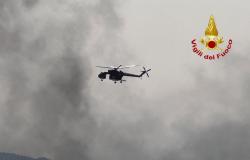by Giuseppe Gagliano –
An Israeli special forces operation aimed at freeing four hostages kidnapped by Hamas on October 7 involved a massive bombing in the Nuseirat refugee camp in central Gaza. This attack killed at least 274 Palestinians and injured 698 people, sparking international outrage. Josep Borrell, the EU’s top diplomat, called the event a “massacre” and called for an immediate ceasefire. The UN’s Martin Griffiths described horrific scenes of dismembered bodies on the ground, drawing attention to the gravity of the humanitarian situation.
The operation, while successful in freeing Noa Argamani, Almog Meir Jan, Andrey Kozlov and Shlomi Ziv, was described as one of the most complex and risky ever carried out by Israeli special forces. During the raid Israeli troops faced intense enemy fire and had to request air support to ensure their escape.
From a geopolitical point of view, this operation has various implications. For Israel, the successful release of the hostages represents a significant victory for Benjamin Netanyahu’s government, which has always supported the need for strong military pressure to secure the release of captured Israelis. However, the high number of civilian victims in Gaza has fueled further hatred and tension, complicating the already critical humanitarian situation in the region.
The international reactions were strong and immediate. The European Union and the United Nations condemned the operation, calling for an immediate ceasefire and a negotiated solution for the release of the hostages. The international community, already worried about the prolongation of the conflict, could increase pressure on Israel to stop military operations and start peace negotiations.
In the United States, while supporting Israel in the rescue mission, President Joe Biden reiterated the need to find a peaceful and negotiated solution to the conflict. He has expressed frustration with the Israeli government’s resistance to stopping the fighting, suggesting that Netanyahu might prolong the war to protect his own political interests.
Internally, the operation may temporarily strengthen Netanyahu’s position, but it also increases pressure to find a lasting solution that avoids further loss of life. The suffering of Palestinian civilians fuels the frustration and determination of militant factions, making efforts to reach a lasting truce even more complex.
The rescue operation in Gaza highlights the complexity and risk of military operations in densely populated areas and the urgent need to find a diplomatic solution to the conflict. International pressure on Israel could grow, pushing for a ceasefire and a negotiated approach to resolving the humanitarian crisis in Gaza.






